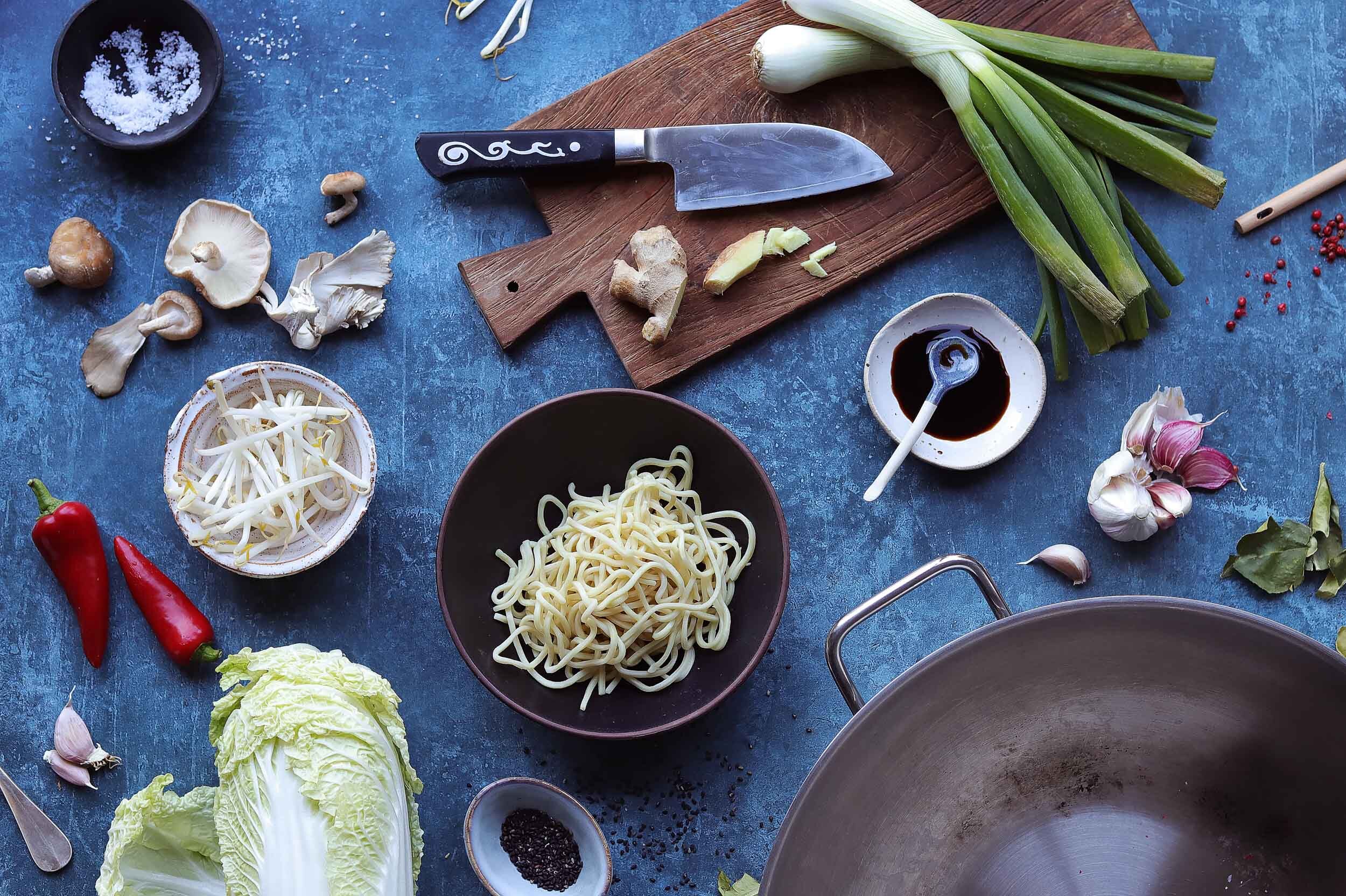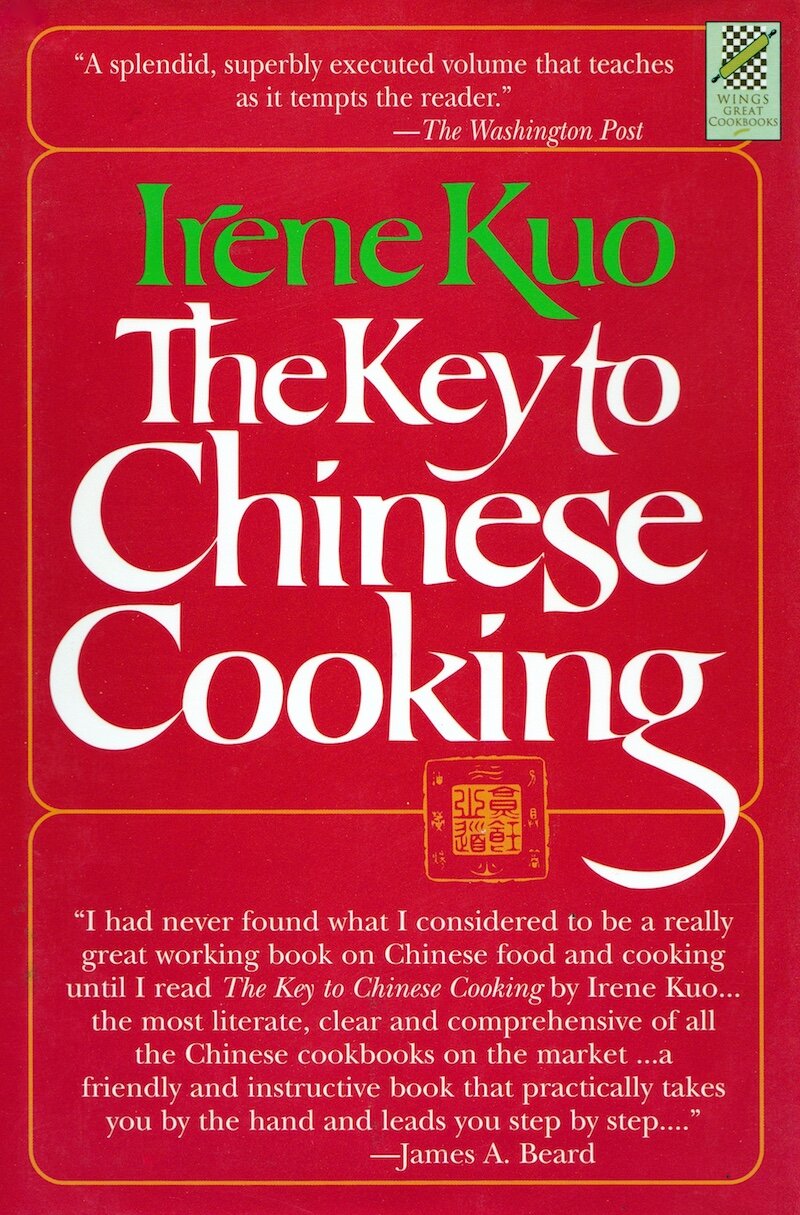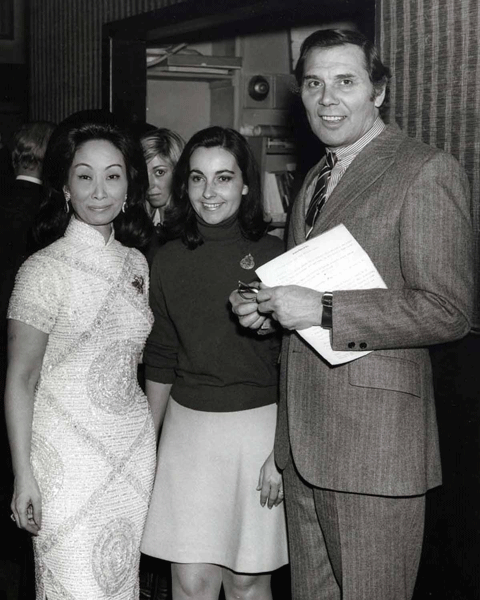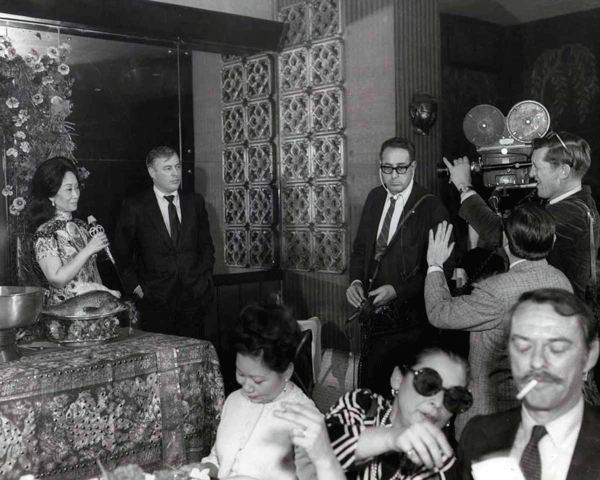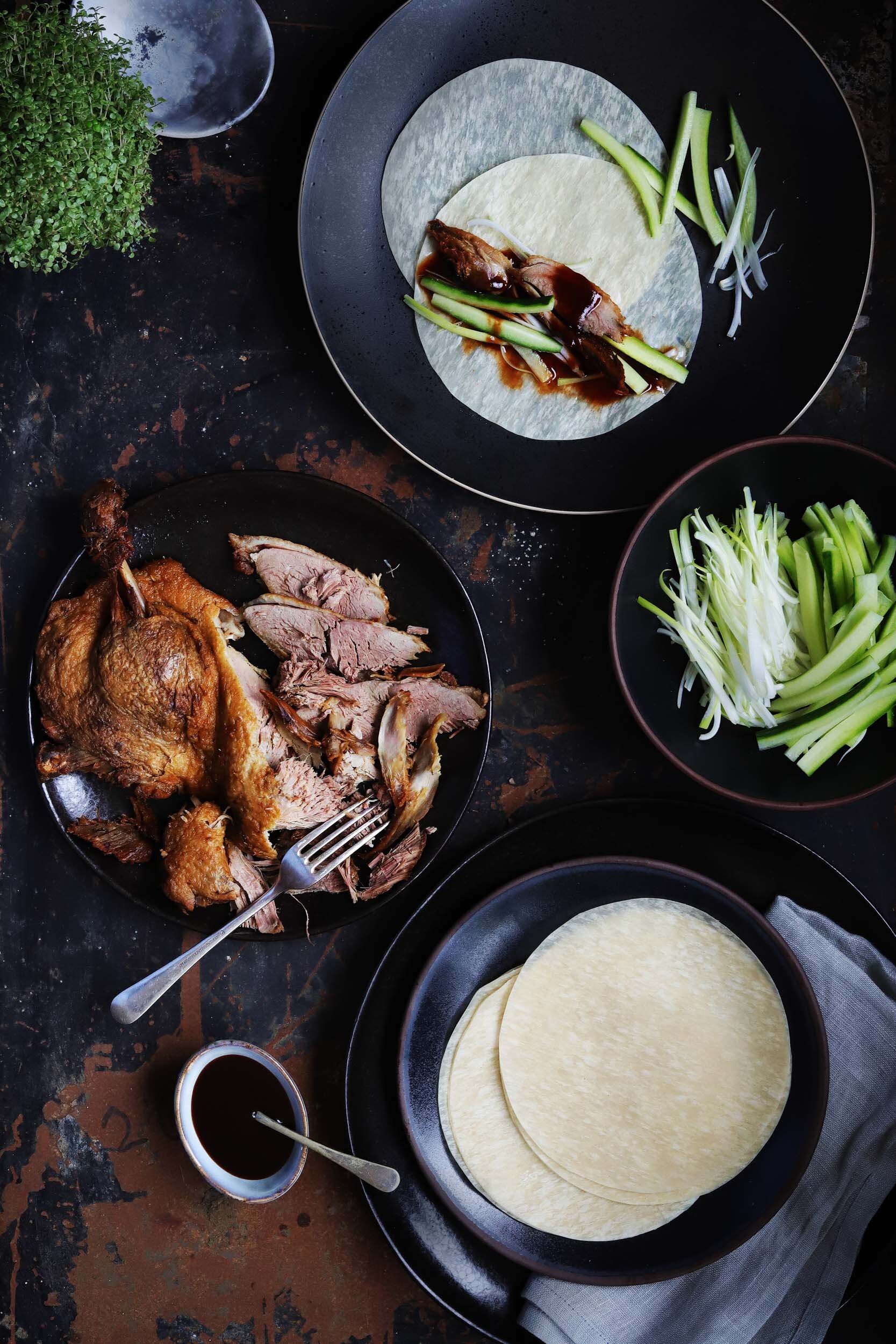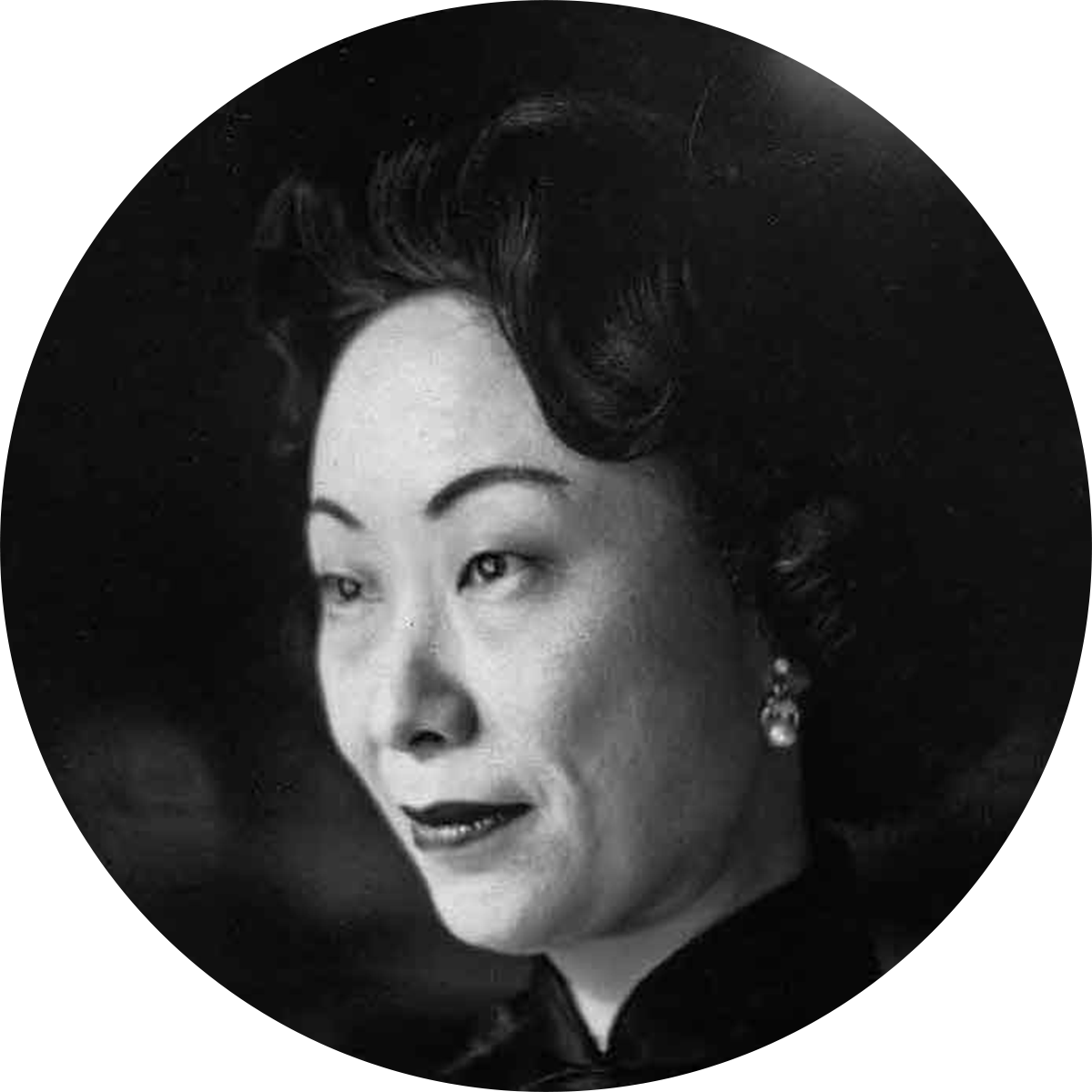Advertisement
The key to Chinese New Year
24 January 2020 · Author Profile
Jim Kuo reminisces about the elaborate Chinese New Year banquets hosted by his mother, the illustrious Irene Kuo
Look no further than the The Key to Chinese Cooking by Irene Kuo to help you plan your Chinese New Year feast. The Lunar New Year begins on January 25th, 2020 with celebratory feasts beginning on the eve of the new year. Kuo’s masterpiece, first published in 1977 is considered the urtext of Chinese cookbooks, offering a foundation of technique with thorough instructions and hundreds of recipes to help eager home-cooks master the cuisine of China and discover holiday favorites such as New Year Dumplings.
Irene Kuo (1919 – 1993) was born in Shanghai, China, but made the United States her permanent home after the fall of the Chinese Nationalist Party in 1949. In America, Kuo became the proprietor of two popular Manhattan Chinese Restaurants that she opened in the 1960s: the Gingko Tree located near Lincoln Center and the Lichee Tree in Greenwich Village, famous for its lavish week-long banquets hosted by Kuo to celebrate the Chinese New Year.
We chatted with Kuo’s son, Jim Kuo, who shares memories of the exuberant celebrations and other lessons learned from his mother, the great Irene Kuo.
Did you grow up around cookbooks?
I certainly grew up around them. When my mother passed away, she left a large collection, many written in Chinese. For a long time, I didn’t want to let go of them due to their sentimental value. I did eventually get rid of many, but managed to keep a small collection of favorites.
Your mother was a well-known restaurateur, who is quoted as saying she worked 20 hour days. Did you spend much time with her in her restaurants?
When I was in grade school she started her first restaurant so she wasn’t around me much after school. I didn’t have a strong connection to Chinese food and her cooking at home, but as I got older, I worked in the coat room and as a dishwasher in the kitchen and ate many meals with the restaurant staff. When your parents own a restaurant, food becomes very much a part of your life.
You have to understand when my parents came to the states in the 40s, they were trying to assimilate into a different culture. It was a sense of being in a melting pot and wiping away a lot of your past. I wasn’t raised speaking Chinese, perhaps out of fear that I would be shunned as an outsider. Most often, I wanted to eat hamburgers and peanut butter and jelly sandwiches. It was about how much you can blend in. Things have changed for the better, it's nice to see people now embracing and celebrating their cultural identity.
For her, it was a bit more of a dichotomy. She was very proud of her background coming from a well-to-do, distinguished family. At the same time she believed success meant to acculturate to life in America. Whenever I see the famed Mexican actress Katy Jurado, I’m reminded of my mother, that strong, resilient woman, proud of who she is and where she comes from.
Do you remember favorite dishes she would make for you and your family?
I think later on, when she moved to the West coat, and I was working in Los Angeles, I would stop by her home, and that’s when I learned the most. I would watch her cook and study her techniques. Some of my favorites were the small cold appetizers, mostly the sautéed vegetables or slices of marinated peppers or cold cucumbers, those sorts of things. She just had a knack of being able to make them so quickly or serve them days afterwards still tasting wonderful, even better than before.
I also loved some of the dishes that were very easy to prepare, the saucy, potted dishes known as ‘red cooking’ in Chinese cuisine.
Your mother hosted elaborate Chinese New Year’s celebrations at The Lichee Tree, her restaurant in Greenwich Village. Can you tell us about any of these?
She would throw an elaborate Chinese New Year's banquet over a full week in her restaurant and what a big deal that would be. People would reserve a table the year before selling out within weeks. It was an enormous affair with a stage, music, Chinese dancers and of course, the food. The head chef would come out with cleavers and chop food to music, it was that insane. My mother would MC the event or share duties with celebrity MCs. The media would be there too. 20-some dishes would be served and she would change her dress or "cheongsam" each time before introducing a new course. It was attended by celebrities, politicians, and the New York elite. It was crazy and it would take a lot out of her.
We never practiced authentic traditions of the Chinese New Year, but I did receive a red envelope each year. My parents' focus was on the restaurant business, so that’s what was important in terms of preparing for New Year's, and not a part of our personal life.
Did she have favorite things she liked to eat?
To recover after the big banquets, we would go to Chinatown and she would seek out unusual dishes—roast squabs and bird's nest soup or fish maws and sea slugs. If you ask me now I couldn’t remember half of them, but they were foods I had never tasted before and thoroughly enjoyed.
Going back to the cookbook, do you still hear from people who are discovering The Key to Chinese Cooking for the first time? What kind of feedback do you hear?
On and off. A few years after she passed I would get letters from people, praising how they enjoyed the book. Sales on Amazon indicate an ongoing interest in her book since critics have praised it being one of the best cookbooks ever and still very relevant.
For younger cooks or people who may not know about the cookbook, what would you tell them about the importance of her book?
It's a book that you’ve got to make a commitment to work with, it's not an easy book. It's really two books in one. The first half is a teaching book, it goes over the major techniques of Chinese cooking. It isn’t the kind of book you can flip to the index and find a recipe, copy the ingredients and cook to perfection. You have to master the techniques, the how and why methods are used and what they do to food. Then the second half is where the recipes are found.
You also have to realize it was written over 30 years ago, so ingredients and terminology have changed, for the good, I think, as they are much more accessible. You may have to substitute ingredients, do some research to find more sustainable ingredients.
Any last thoughts about what do you wish people knew about you mother?
When she was on her cookbook tour and giving demonstrations and talking about food and culture, she always emphasized that cooking and eating is about joy and being with friends and family. So if you want to celebrate Chinese New Year, whether you are Chinese or not and want to cook to enjoy that culture, don’t be anxious about getting it perfect. As she wrote in her introduction, Chinese cooking should be leisurely and free of tension. Enjoy cooking, eating and being in the company of friends. That's what I’d like to leave with people.
Do you have a treasured copy?
Oh yeah, I’ve got one that’s falling apart, but all taped up with gaffers tape, complete with stains of soy sauce and cooking oil. I also have four pristine copies, but I always reach for the one that’s battered and well used.
Irene Kuo is a featured author on ckbk, home to the world's best cookbooks and recipes for all cooks and every appetite. Start exploring now ▸
Sign up for ckbk's weekly email newsletter
As an added bonus you will receive a free PDF download featuring recipe highlights from our favorite cookbooksAdvertisement

